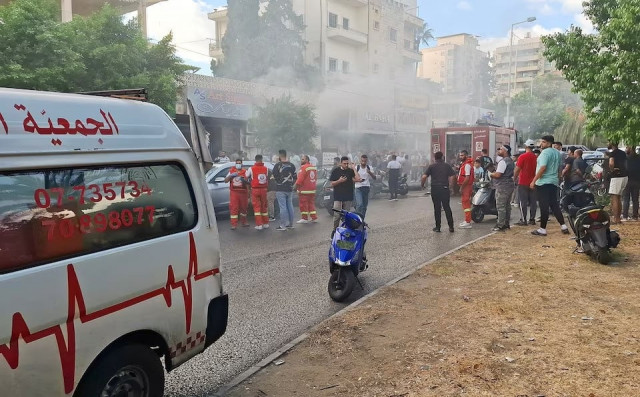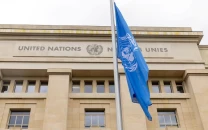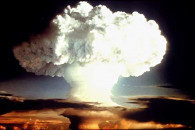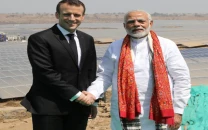Hezbollah radio explosions kill 20, escalating Lebanon-Israel tensions
Explosions struck Hezbollah's radios near a funeral, killing 20 and injuring 450 in southern Lebanon

Southern Lebanon witnessed its deadliest day on Wednesday since fighting between Hezbollah and Israel reignited nearly a year ago, as a series of explosions targeting the armed group’s hand-held radios killed 20 people.
The blasts occurred following the previous day's detonation of Hezbollah pagers, further inflaming tensions in the region. Lebanon’s Ministry of Health reported that more than 450 people were injured in Beirut’s southern suburbs and the Bekaa Valley. The death toll from Tuesday’s blasts also rose to 12, including two children, with nearly 3,000 people injured across the country.
While Israeli officials have not issued a statement, security sources claim Israel’s intelligence agency, Mossad, was behind the attack. A Hezbollah official described the incident as the most significant security breach in the group’s history. The explosions, which left Hezbollah in disarray, unfolded alongside Israel’s 11-month-old war in Gaza, raising concerns that the conflict could escalate along its northern border with Lebanon, potentially triggering a wider regional war.
Israeli Defence Minister Yoav Gallant, speaking from an air force base, warned that a new phase of the conflict was beginning, which would require courage and determination.
Meanwhile, Jordanian Foreign Minister Ayman Safadi accused Israel of pushing the Middle East to the brink of a regional war, accusing the nation of orchestrating dangerous escalations on multiple fronts.
The United States, denying any involvement in the blasts, revealed that Israel had informed Washington on Tuesday of its intention to carry out an operation in Lebanon, though no specific details were provided. A U. official, speaking anonymously, said the operation itself was a surprise to American authorities.
One of Wednesday’s explosions occurred near a funeral organised by Hezbollah for those killed in the previous day’s pager detonations, which had injured many of the group’s fighters. A Reuters reporter in southern Beirut saw Hezbollah members urgently removing batteries from undetonated walkie-talkies and discarding the components in metal barrels. In an effort to avoid Israeli surveillance of mobile phones, Hezbollah had switched to using pagers and other low-tech communication devices.
Lebanon’s Red Cross responded with 30 ambulance teams dispatched to multiple explosion sites, including southern Lebanon and the Bekaa Valley. Images of the destroyed walkie-talkies showed labels marked “ICOM” and “made in Japan.” The radios were reportedly purchased by Hezbollah five months ago, around the same time as the pagers, from a Japanese company whose model, the IC-V82, had been discontinued in 2014.
Tuesday’s explosions were reportedly caused by Israeli spies who remotely detonated explosives hidden in 5,000 pagers ordered by Hezbollah before they crossed into Lebanon. The United Nations Security Council has scheduled a meeting on Friday to discuss the blasts, following a request from Arab states. Reports also indicated that Iran’s ambassador to Lebanon was injured in the explosions, with some sources claiming he lost one eye and suffered severe damage to the other.
In retaliation, Hezbollah launched rockets at Israeli artillery positions on Wednesday, marking the first attack on Israel since the blasts. The Israeli military reported no damage or casualties from the strike. Analysts suggest that Hezbollah is aiming to avoid a full-scale war but faces increasing pressure to respond forcefully to the explosions.
Hezbollah and Israel have been engaged in cross-border skirmishes since the Gaza conflict erupted on 7 October 2023, heightening fears of a wider Middle Eastern war that could draw in major powers like the United States and Iran. The previous highest daily death toll in Lebanon stood at 11, recorded during Israeli shelling last month.
Gallant confirmed that Israel is reallocating troops and resources to its northern border with Lebanon, including moving its 98th Division, composed of elite commando and paratrooper units, from Gaza to the region. He stated that the “centre of gravity” is shifting northward as Israel prepares for a potential escalation with Hezbollah.
A full-blown conflict between Israel and Hezbollah could have catastrophic consequences for Lebanon, a country still reeling from a 2019 financial collapse and the 2020 Beirut port explosion. The increasing violence also threatens to complicate ongoing diplomatic efforts led by Egypt, Qatar, and the U.S. to broker a ceasefire between Israel and Hamas, an ally of Hezbollah supported by Iran.
White House national security spokesperson John Kirby said it was too soon to determine how the recent explosions might impact ceasefire negotiations. Hezbollah, Iran’s most powerful proxy in the Middle East, declared in a statement that it would continue to support Hamas in Gaza and warned Israel to prepare for a response to what it called the pager “massacre.”
On Wednesday, a delegation from Hamas visited those injured in the explosions at hospitals in Lebanon, according to the state news agency NNA. The series of blasts follows a string of assassinations of high-ranking Hezbollah and Hamas leaders, widely attributed to Israel since the start of the Gaza war.



















COMMENTS
Comments are moderated and generally will be posted if they are on-topic and not abusive.
For more information, please see our Comments FAQ